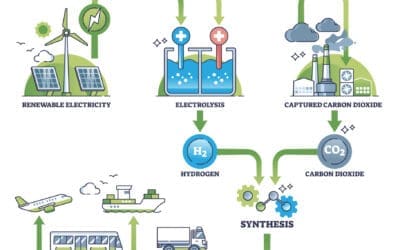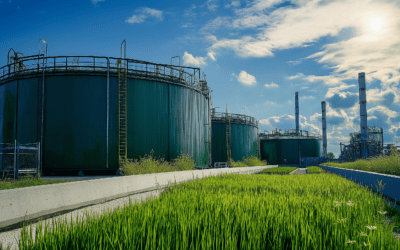
What is the Future of Hydrogen Fuel for Public Sector Vehicles?
Hydrogen fuel has long been considered a promising alternative for decarbonising public sector fleets. With its potential to eliminate tailpipe emissions and reduce reliance on fossil fuels, hydrogen is often described as the fuel of the future. But what is the future of hydrogen fuel in practical terms, particularly for local government fleets, emergency services, and heavy-duty vehicles? While hydrogen offers significant advantages, it still faces key challenges in cost, infrastructure, and production scalability, making it a solution that needs further development before it can be widely adopted.
Hydrogen’s Role in Decarbonising Public Sector Fleets
Hydrogen fuel cells work by converting hydrogen into electricity through an electrochemical reaction, producing only water as a byproduct. The appeal is clear: zero-emissions driving for fleets, with the potential for much greater range and faster refuelling than battery electric alternatives. The future of hydrogen fuel is bright, but it is not without obstacles, particularly in terms of cost-efficiency and infrastructure.
Heavy-Duty Vehicles: Hydrogen’s Key Promise
For heavy-duty vehicles like refuse collection trucks and public works transport, hydrogen fuel is seen as the fuel of the future due to its high energy density. These vehicles need longer ranges and often carry heavy loads, making hydrogen an attractive option. Unlike battery-electric vehicles, which struggle with long recharge times and added weight, hydrogen fuel cells offer quick refuelling and a better power-to-weight ratio. However, infrastructure limitations and the high cost of hydrogen production and storage remain major barriers. While the future of hydrogen fuel is promising for heavy-duty fleets, it will require significant investment to realise this potential.
Emergency Services: Hydrogen for Ambulances and Fire Trucks
Emergency services rely on vehicles that must be ready at all times, and hydrogen fuel cells could theoretically meet these needs due to their fast refuelling times compared to battery-powered alternatives. However, the future of hydrogen fuel in this sector faces considerable challenges, with limited hydrogen refuelling stations in the UK and high production costs. To truly become the fuel of the future for emergency services, hydrogen fuel technology will need to become more accessible and cost-effective.
Local Government Fleets: A Long Road Ahead
Local authorities are leading the charge in reducing carbon emissions, and while hydrogen is often touted as a long-term solution, the future of hydrogen fuel in public sector fleets is still far off. The current cost of developing refuelling infrastructure, combined with the energy losses involved in hydrogen production, makes it difficult for local councils to invest in this technology today. Instead, local governments are likely to continue focusing on more immediate, scalable solutions. According to a recent article in The Times, only 4% of hydrogen projects worldwide have secured the necessary investment to move forward, which highlights the challenges public sector organisations will face if they seek to rely on hydrogen in the near future.
HVO: The Best Interim Solution for Public Sector Fleets
While hydrogen technology continues to develop, Hydrotreated Vegetable Oil (HVO) offers a reliable alternative for public sector fleets right now. HVO is a renewable, sustainable fuel that provides up to a 90% reduction in greenhouse gas emissions compared to conventional diesel. Importantly, it can be used in existing diesel engines with no modifications, making it an easy and cost-effective solution for fleets seeking immediate carbon reductions. See my comparison of different renewable fuels for context.
HVO offers public sector fleets an accessible solution that can reduce emissions today while hydrogen fuel and its infrastructure continue to evolve. For many local governments, HVO represents a practical pathway to meeting sustainability targets without the wait.
Conclusion
The future of hydrogen fuel in public sector vehicles holds great promise, particularly for heavy-duty vehicles and emergency services. However, current challenges related to cost and infrastructure mean that hydrogen is not yet ready for widespread use. In the meantime, HVO fuel provides a practical, sustainable alternative that can help local governments reduce their carbon footprint today while hydrogen technology continues to develop.








